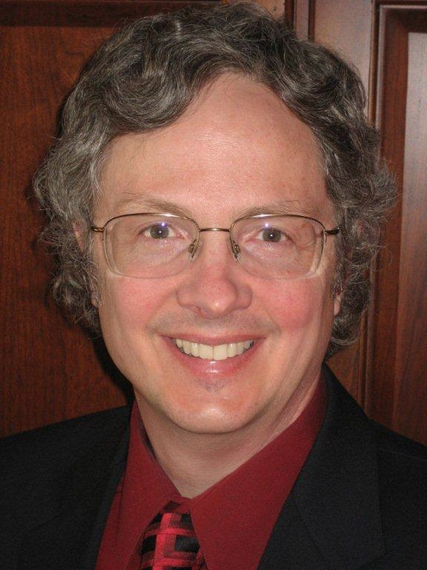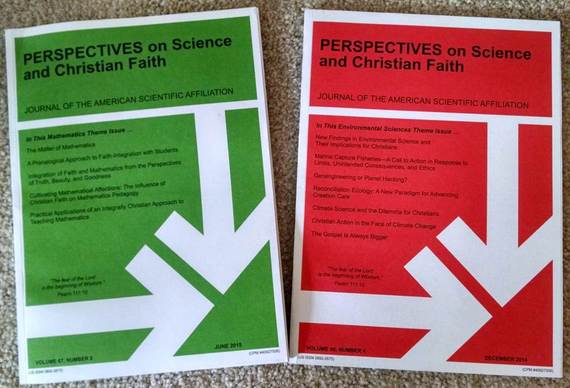Co-authored with James Peterson
Have you ever searched the web for what religious, specifically Christian, people believe about science and scientific topics and issues? I bet you've encountered some ... uh... challenging sites. Wouldn't it be great if there was a website or a journal covering Christianity and science that was as trustworthy and valuable as, say, Science or Nature?
Well, there is. When I say trustworthy, I mean that the material published is carefully peer reviewed by qualified scientists or theologians or both, depending on the content. The quarterly journal Perspectives on Science and Christian Faith, published by the American Scientific Affiliation, is an academic journal gem that anyone interested in this discussion space should know about. Here you can find articles and book reviews on a wide variety of science topics, and related theological topics, from a Christian perspective, written by Christian scientists, engineers, and theologians interested in science. My friend and colleague, Prof. James Peterson of Roanoke College, Virginia, is the editor-in-chief of this journal, and shared the following thoughts with me:

Prestigious
The first journal dedicated to thinking through the best of the sciences and Christian faith was the Journal of the American Scientific Affiliation.
Started sixty-seven years ago, it is still going strong each quarter under the title Perspectives on Science and Christian Faith (PSCF).

Each issue requires the efforts of over seventy scholars working through full academic peer review to assure that resulting articles and reviews are informed, new, valuable, and clear. Contributing authors and reviewers include recognized scholars from all the involved disciplines such as Thomas Ackerman, Robert Benne, R. J. Berry, Albert Borgmann, Edward Davis, Owen Gingerich, Noreen Hertzfeld, Gareth Jones, Robert Mann, Keith Miller, Nancey Murphy, Mark Noll, Don Page, Alvin Plantinga, Clark Pinnock, and Jennifer Wiseman, hailing from Harvard, Oxford, Princeton, Stanford, and many other institutions. Google any of these scientists or theologians and you will be assured of the quality of this journal.
Interdisciplinary Discussion
Few journals are able to draw, as PSCF does, from so many disciplines for the most complex problems such as origins or the nature of being human. There is unusual opportunity for cross-disciplinary insight and correction, though there is no claim to offer the final word. While each essay shows mastery of the involved disciplines -- no easy task in an interdisciplinary journal -- there is always more to discover and discern. It is not unusual for substantially contrary articles to appear in the same issue of the journal or in subsequent issues as the discussion develops. The first word in the journal's title, 'Perspectives,' is intentionally plural. At the leading edge of inquiry, multiple views are almost always in play. Publication means that the approach merits attention, not that it is the end of the discussion.
In each article, the reader sees in the text and endnotes what is available on the topic for and against the author's thesis. The relevant discussion of the topic, past and current, is in full view. This brings up to speed the reader who may be an expert in a different field, and it keeps the article appropriately focused and modest.
New Contributions
Questions and themes recur in the world of science and faith, but each article brings forward some aspect worthy of consideration that was not part of the literature before. The author has taken into account and explained the byways on the subject, and now establishes a new contribution. The contribution could be in the conclusion, or in an argument, or in a way of explaining the issue, but there will always be something new. The role of PSCF is not to repeat what is already commonplace or to articulate a party line. Challenges and implications are welcome and can be fruitful.
Trustworthy
If it appears in PSCF, the author's viewpoints have been tested and found compelling by experts in the involved fields. The journal is not published instantly; rather, it is carefully verified to be more worthy of trust. It cannot be as extended in argument as a monograph, but it is more timely, with many authors and approaches presented. In a search-engine world, there are plenty of websites - but you need to sort through copious information to find what is potentially worthy of attention, and you have to decide if you think it is accurate. The editors, peer reviewers, and board members of PSCF invest countless hours in evaluating what is offered to the journal, and in scanning for what other topics or viewpoints would be valuable to our readers.
Clear
There is no point in publishing an article that meets every standard above but then presents in a way that is difficult to understand. While PSCF readers are erudite, they don't know the jargon of every specialty. Authors are required to be sure that their case includes the tools and explanations that might help readers to follow the argument. The content in this field is usually challenging, but PSCF aims to make the communication of it no more difficult than it has to be.
In summary
The sciences are ever extending their insight and reach, while more than two billion people call themselves Christians today. Combining such sheer numbers with two thousand years of reflection and analysis offers a myriad of interesting and important points of conversation. In this important discussion space, PSCF can be counted on to give you peer-reviewed, clearly stated viewpoints by prestigious authors. PSCF offers you a forum where you can get fresh insights on common issues or be launched beyond into promising new territory -- a valuable resource in the often confusing world of science and faith.
